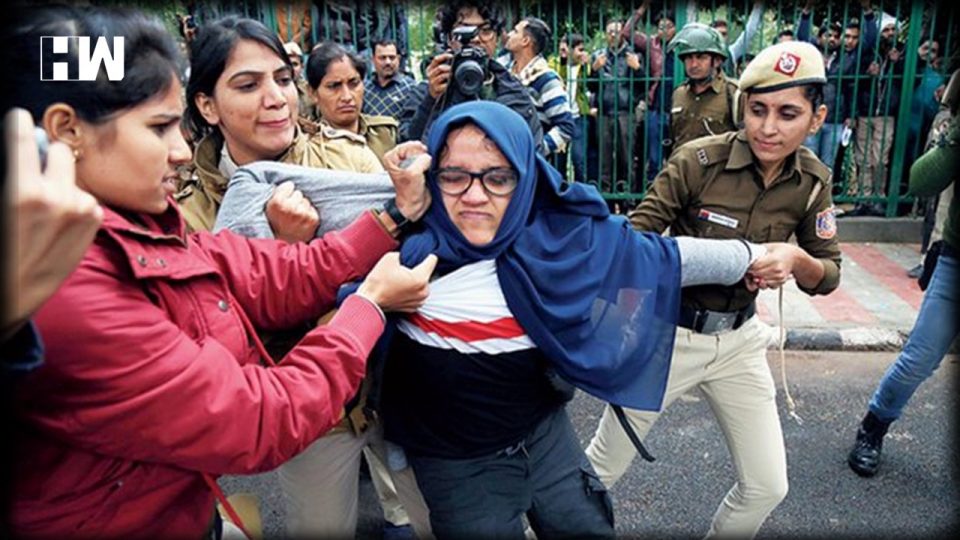The report is released from Freedom House, the oldest American organisation devoted to the support and defence of democracy around the world.
New Delhi| According to the report by Freedom House, there are mainly 3 reasons for decline in the score: Abrogation of article 370, which gave a special status to the erstwhile state of Jammu and Kashmir, the implementation of the National Register of Citizens(NRC) in Assam and the implementation of the Citizenship Amendment Act (CAA).
The Freedom House reported:
India’s turn toward Hindu nationalism
Almost since the turn of the century, the United States and its allies have courted India as a potential strategic partner and democratic counterweight to China in the Indo-Pacific region. However, the Indian government’s alarming departures from democratic norms under Prime Minister Narendra Modi’s Bharatiya Janata Party (BJP) could blur the values-based distinction between Beijing and New Delhi. While India continues to earn a Free rating and held successful elections last spring, the BJP has distanced itself from the country’s founding commitment to pluralism and individual rights, without which democracy cannot long survive.
Several of India’s neighbors have persecuted religious minorities for many years. But instead of stressing the contrast with its own traditions and seeking to propagate them abroad, India is moving toward the lower standards of its region. Just as Chinese officials vocally defended acts of state repression against Uighurs and other Muslim groups before international audiences in 2019, Modi firmly rejected criticism of his Hindu nationalist policies, which included a series of new measures that affected India’s Muslim populations from one end of the country to the other.
The first major step was the central government’s unilateral annulment of the semiautonomous status of Jammu and Kashmir, India’s only Muslim-majority state. Federal authorities replaced the state’s elected institutions with appointees and abruptly stripped residents of basic political rights. The sweeping reorganization, which opponents criticized as unconstitutional, was accompanied by a massive deployment of troops and arbitrary arrests of hundreds of Kashmiri leaders and activists. Restrictions on freedom of movement and a shutdown of mobile and internet service made ordinary activities a major challenge for residents. As a result, Indian Kashmir experienced one of the five largest single-year score declines of the past 10 years in Freedom in the World, and its freedom status dropped to Not Free.

The government’s second move came on August 31, when it published a new citizens’ register in the northeastern state of Assam that left nearly two million residents without citizenship in any country. The deeply flawed process was widely understood as an effort to exclude Muslims, many of whom were descended from Bengalis who arrived in Assam during the colonial era. Those found to be undocumented immigrants were expected to be placed in detention camps. However, the Bengali population that was rendered stateless included a significant number of Hindus, necessitating a remedy that would please supporters of the ruling BJP.
Also Read: 600 Writers, Artists, Former Judges, and Officials have Urges the Government to Withdraw CAB
That remedy was provided by the third major action of the year, the December passage of the Citizenship Amendment Law, which expedites citizenship for adherents of six non-Muslim religions from three neighboring Muslim-majority countries. In effect, India will grant Hindus and other non-Muslims special protection from persecution in Bangladesh, Pakistan, and Afghanistan, but Muslims—including those from vulnerable minority sects or from other neighboring states like China and Sri Lanka—will receive no such advantage. Home Affairs Minister Amit Shah has pledged to repeat the Assam citizens’ register process nationwide, raising fears of a broader effort to render Indian Muslims stateless and ensure citizenship for non-Muslims.
These three actions have shaken the rule of law in India and threatened the secular and inclusive nature of its political system. They also caused the country to receive the largest score decline among the world’s 25 largest democracies in Freedom in the World 2020. Tens of thousands of Indians from all religious backgrounds have taken to the streets to protest this jarring attack on their country’s character, but they have faced police violence in return, and it remains to be seen whether such demonstrations will persuade the government to change course, reported freedom house.
Many have drawn comparisons between recent violence in Delhi and inter-communal riots in Gujarat that killed some 1,000 people — mostly Muslims — when Mr Modi was chief minister.
“2002 is one of the worst pogroms in this country,” Shabnam Hashmi, an activist, recently told the ABC.
As an independent media platform, we do not take advertisements from governments and corporate houses. It is you, our readers, who have supported us on our journey to do honest and unbiased journalism. Please contribute, so that we can continue to do the same in future.

